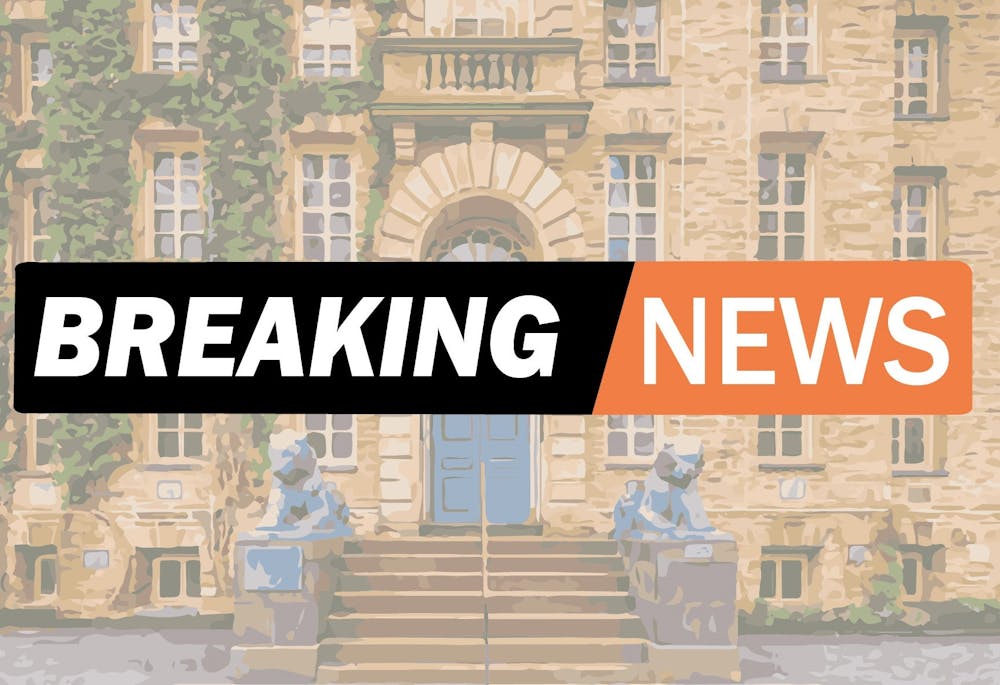In a complete reversal of previously announced plans, first-years and juniors will no longer be permitted to live on campus in the fall semester, the University announced on Friday. All teaching will be conducted remotely.
The University will continue to accommodate students previously approved to return for senior thesis work, as well as those “whose situations make it extremely difficult or impossible for them to return to or study from home.” Graduate students, including incoming first-year graduate students, will also be welcomed back to campus — though most programs will offer remote options if needed.
While acknowledging that the announcement would be “disheartening and disappointing,” University President Christopher Eisgruber ’83 said it was based on a combination of health concerns and restrictions which would render the on-campus experience “confining and unpleasant for most students.”
“In brief, the pandemic’s impact in New Jersey has led us to conclude that we cannot provide a genuinely meaningful on-campus experience for our undergraduate students this fall in a manner that is respectful of public health concerns and consistent with state regulations,” Eisgruber wrote in a message to students.
Eisgruber added that “the health risks to the campus and surrounding populations appear greater now than they did just a month ago” and “where schools and universities have started to bring back students, COVID cases have rapidly followed.”
In a statement to The Daily Princetonian, University Spokesperson Michael Hotchkiss wrote that this decision was informed in part by restrictions from the State of New Jersey — which included a strict 14-day quarantine and limited access to common areas. He added that in-person instruction would not be approved until New Jersey moved to Stage 3 of its reopening plan and that “these and other restrictions could be tightened if public health trends do not improve, including the possibility that students could at some point be required to return home.”
“Because of the course of the pandemic, and the resulting regulations and public health guidance here in New Jersey, returning students were facing a range of restrictions upon returning to campus,” Hotchkiss wrote. “Taken in their totality they prevented us from being able to provide a meaningful on-campus experience.”
Dean of the College Jill Dolan and Vice President for Campus Life W. Rochelle Calhoun also announced on Friday that the deadline for sophomores, juniors, and seniors to request a leave of absence — and for first-year students to defer their enrollment — would be extended until August 12.

Update: On Monday, Dolan and Calhoun sent undergraduates a memo pushing the deadline for requesting leaves and deferrals back to August 13 at noon. They added that the University “might have to resort to a computerized lottery to make the process fair” depending on the number of students who request a leave of absense.
“We’ll let you know as soon as possible whether you’ve been approved for a one-year leave or deferral or two,” they wrote. “If you receive a two-year leave or deferral, you will be allowed to rescind your request and enroll for fall 2020 instead.”
The additional fall 2020 add/drop period set to end on Friday has also been extended to August 12.
Though the emergency residency process has already been completed for sophomores and seniors who have requested approval to stay on campus for the fall, a new round of applications have been opened for first-year students and juniors “who will be unable to learn it at home due to high financial need and/or significant extenuating circumstances that make it impossible to secure alternative housing.”

The application is available in TigerHub and must be submitted by 5:00 p.m. on August 12. Due to restrictions imposed by the Department of Homeland Security, first-year international students are not eligible for emergency residence.
While extending the deadlines to request a leave, Dolan and Calhoun encouraged students to “persist in your Princeton education if you can.” Faculty, staff, and students, “have worked hard this summer to plan virtual courses and co-curricular experiences that are innovative, creative, and exciting.”
Looking forward to the spring, the University hopes to bring undergraduates back but cannot make any guarantees. “If we are able to do so, our highest priority will be to bring back seniors in the Class of 2021,” Eisgruber noted.
A number of other colleges and universities have announced reversals of their previously announced fall plans in recent days. On Wednesday, Smith College, which had previously planned to invite 60 percent of its student body back to campus, reversed course to conduct all course instruction remotely.
On Thursday, University of Massachusetts Amherst announced their change of plans. The University of Southern California issued a similar announcement in early July, and Johns Hopkins University shifted to fully-virtual instruction yesterday. The University of Pennsylvania also recently scaled back its reopening plan — now offering nearly all classes online.
Benjamin Renton, a student journalist at Middlebury College, has tracked the changes in fall plans, compiling around 100 thus far. Within New Jersey, Drew University, Saint Peter’s University, and The College of New Jersey have also announced fully-remote instruction after previously indicating other plans.
The University has scheduled a Town Hall for students on August 11 and parents on August 13 to answer questions about “this new reality,” both at 6 p.m. EDT.
Editor’s Note: This story previously indicated that Duke University and the University of Pennsylvania would provide fully-remote instruction. While both institutions did scale back their reopening plans, UPenn recently shifted to providing nearly all classes online and Duke still plans to offer some in-person instruction. The ‘Prince’ regrets the error.
This story is breaking and will be updated as more information becomes available. Last updated on August 10 at 11:33 a.m. EDT.








